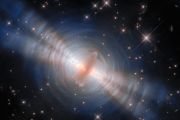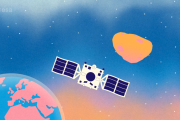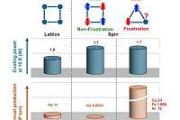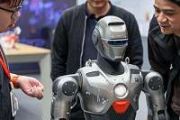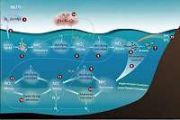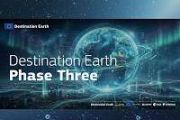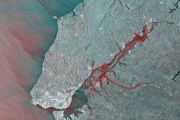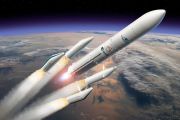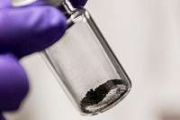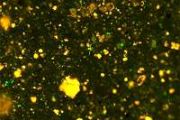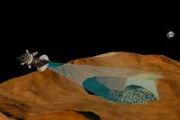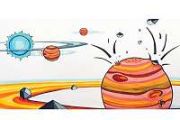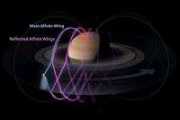
Copernical Team
"Yellowballs" offer new insights into star formation
 A serendipitous discovery by citizen scientists has provided a unique new window into the diverse environments that produce stars and star clusters, revealing the presence of "stellar nurseries" before infant stars emerge from their birth clouds, according to Planetary Science Institute Senior Scientist Grace Wolf-Chase.
"Yellowballs are small compact features that were identified in infra
A serendipitous discovery by citizen scientists has provided a unique new window into the diverse environments that produce stars and star clusters, revealing the presence of "stellar nurseries" before infant stars emerge from their birth clouds, according to Planetary Science Institute Senior Scientist Grace Wolf-Chase.
"Yellowballs are small compact features that were identified in infra Life on Venus? First we need to know more about molecules in the atmosphere
 The search for life on other planets has received a major boost after scientists revealed the spectral signatures of almost 1000 atmospheric molecules that may be involved in the production or consumption of phosphine, a study led by UNSW Sydney revealed.
Scientists have long conjectured that phosphine - a chemical compound made of one phosphorous atom surrounded by three hydrogen atoms (P
The search for life on other planets has received a major boost after scientists revealed the spectral signatures of almost 1000 atmospheric molecules that may be involved in the production or consumption of phosphine, a study led by UNSW Sydney revealed.
Scientists have long conjectured that phosphine - a chemical compound made of one phosphorous atom surrounded by three hydrogen atoms (P DARPA Selects Performers for Phase 1 of Demonstration Rocket for Agile Cislunar Operations (DRACO) Program
 DARPA has awarded contracts for the first phase of the Demonstration Rocket for Agile Cislunar Operations (DRACO) program. The goal of the DRACO program is to demonstrate a nuclear thermal propulsion (NTP) system above low Earth orbit in 2025. The three prime contractors are General Atomics, Blue Origin, and Lockheed Martin.
Rapid maneuver is a core tenet of modern Department of Defense (D
DARPA has awarded contracts for the first phase of the Demonstration Rocket for Agile Cislunar Operations (DRACO) program. The goal of the DRACO program is to demonstrate a nuclear thermal propulsion (NTP) system above low Earth orbit in 2025. The three prime contractors are General Atomics, Blue Origin, and Lockheed Martin.
Rapid maneuver is a core tenet of modern Department of Defense (D Exolaunch Introduces Eco Space Tug Program
 Exolaunch, the leading rideshare services provider for the NewSpace industry and trendsetter in deployment solutions, has introduced its space tug program, featuring a new line of revolutionary orbital transfer vehicles (OTVs) that will launch satellites to custom orbits in an environmentally responsible way - the first of its kind in the OTV industry. The company's space tug testing and flight
Exolaunch, the leading rideshare services provider for the NewSpace industry and trendsetter in deployment solutions, has introduced its space tug program, featuring a new line of revolutionary orbital transfer vehicles (OTVs) that will launch satellites to custom orbits in an environmentally responsible way - the first of its kind in the OTV industry. The company's space tug testing and flight Roscosmos Has Lost Several Contracts for Satellite Launches Due to 'Mean US Sanctions'
 The Russian State Space Corporation Roscosmos has lost several potential contracts for launching foreign satellites due to Washington's sanctions, Roscosmos Director General Dmitry Rogozin told Sputnik on Monday.
"I am aware of several similar situations when the customers would like to use our rockets but were forced to refuse because of the mean US sanctions. This happens if the spacecra
The Russian State Space Corporation Roscosmos has lost several potential contracts for launching foreign satellites due to Washington's sanctions, Roscosmos Director General Dmitry Rogozin told Sputnik on Monday.
"I am aware of several similar situations when the customers would like to use our rockets but were forced to refuse because of the mean US sanctions. This happens if the spacecra On Gagarin anniversary, Putin says Russia must remain 'space power'
 President Vladimir Putin called on Monday for Russia to remain a great power in space, as the country celebrated the 60th anniversary of the legendary flight that made Yuri Gagarin the first person in orbit.
Russia's space industry has struggled in recent years and been hit by a series of mishaps, but the sending of the first human into space on April 12, 1961 remains a major source of natio
President Vladimir Putin called on Monday for Russia to remain a great power in space, as the country celebrated the 60th anniversary of the legendary flight that made Yuri Gagarin the first person in orbit.
Russia's space industry has struggled in recent years and been hit by a series of mishaps, but the sending of the first human into space on April 12, 1961 remains a major source of natio New laser to help clear the sky of space debris
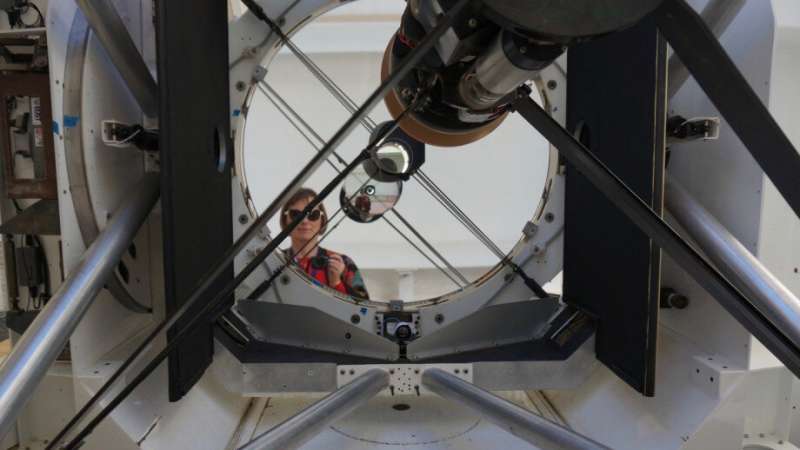
Researchers at the Australian National University (ANU) have harnessed a technique that helps telescopes see objects in the night sky more clearly to fight against dangerous and costly space debris.
The researchers' work on adaptive optics—which removes the haziness caused by turbulence in the atmosphere—has been applied to a new 'guide star' laser for better identifying, tracking and safely moving space debris.
Space debris is a major threat to the $US700 billion of space infrastructure delivering vital services around the globe each day. With laser guide star adaptive optics, this infrastructure now has a new line of defense.
The optics that focus and direct the guide star laser have been developed by the ANU researchers with colleagues from Electro Optic Systems (EOS), RMIT University, Japan and the U.S. as part of the Space Environment Research Centre (SERC).
EOS will now commercialize the new guide star laser technology, which could also be incorporated in tool kits to enable high-bandwidth ground to space satellite communications.
The laser beams used for tracking space junk use infrared light and aren't visible.
Why primordial asteroids that avoided massive collisions all seem to be about the same size
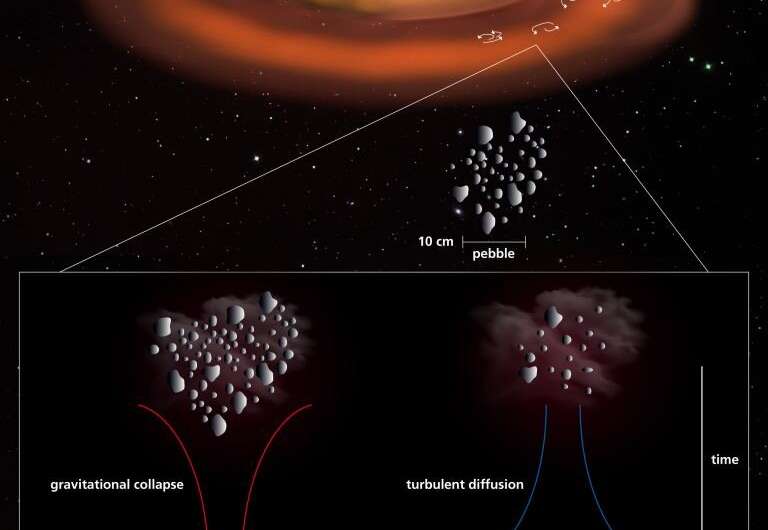
Planetary systems form out of the remnant gas and dust of a primordial star. The material collapses into a protoplanetary disk around the young star, and the clumps that form within the disk eventually become planets, asteroids, or other bodies. Although we understand the big picture of planetary formation, we've yet to fully understand the details. That's because the details are complicated.
Take, for example, the mystery of asteroids and collisions. You would think that planets and asteroids formed gradually: small clumps colliding with others to make bigger clumps. As an object gets bigger, it would be more likely to attract other bodies, and thus be more likely to experience collisions. But as a recent study shows, that isn't always the case with asteroids.
Many asteroids can be grouped into families, groups that are similar in their chemical composition.
Five things to know about Gagarin's journey to space
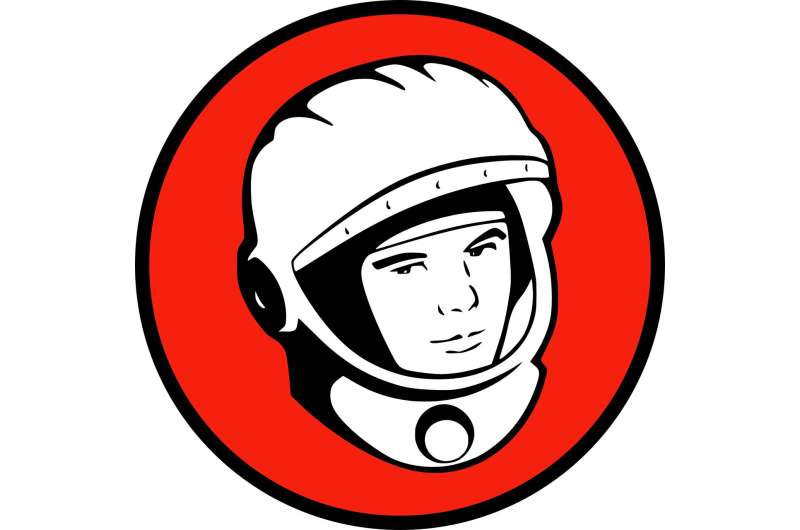
Sixty years ago on Monday cosmonaut Yuri Gagarin became the first person in space, securing victory for Moscow in its race with Washington and marking a new chapter in the history of space exploration.
Decades later, his journey has become shrouded in myth after many details about the historic mission were for years kept secret by the Soviets.
Here are five things to know about Gagarin's legendary flight:
'Let's go!'
A trained steel worker turned military pilot, Gagarin was selected from thousands of candidates to undergo the rigorous training required for a space flight.
Apart from showing excellent results in his tests, Gagarin, then aged 27, also reportedly stood out by removing his shoes before entering the Vostok spacecraft designated for the mission, a custom in Russia when entering a home.
On April 12, 1961, as Gagarin's flight took off from the Baikonur spaceport in Kazakhstan, he exclaimed his iconic catchphrase "Poekhali!", or "Let's go!" in Russian.
Risky business
The flight lasted just 108 minutes as the Vostok completed one loop around the Earth.
Once Gagarin safely returned home, the success of his mission outshone the fact that not everything went according to plan.
How do we know if an asteroid headed our way is dangerous?
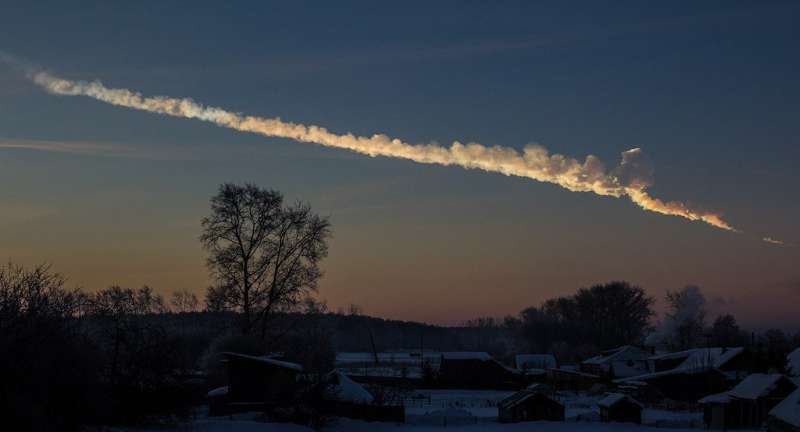
There are a lot of things that pose a threat to our planet—climate change, natural disasters, and solar flares, for example. But one threat in particular often captures public imagination, finding itself popularised in books and films and regularly generating alarming headlines: asteroids.
In our solar system there are millions of space rocks known as asteroids. Ranging in size from a few metres to hundreds of kilometres, these objects are mostly left over from the formation of our planets 4.6 billion years ago. They are building blocks that didn't quite make it into fully fledged worlds.
Asteroids and other objects that make a closest approach to our sun of less than 1.3 astronomical units (1 astronomical unit, AU, is the Earth-Sun distance) are known as













